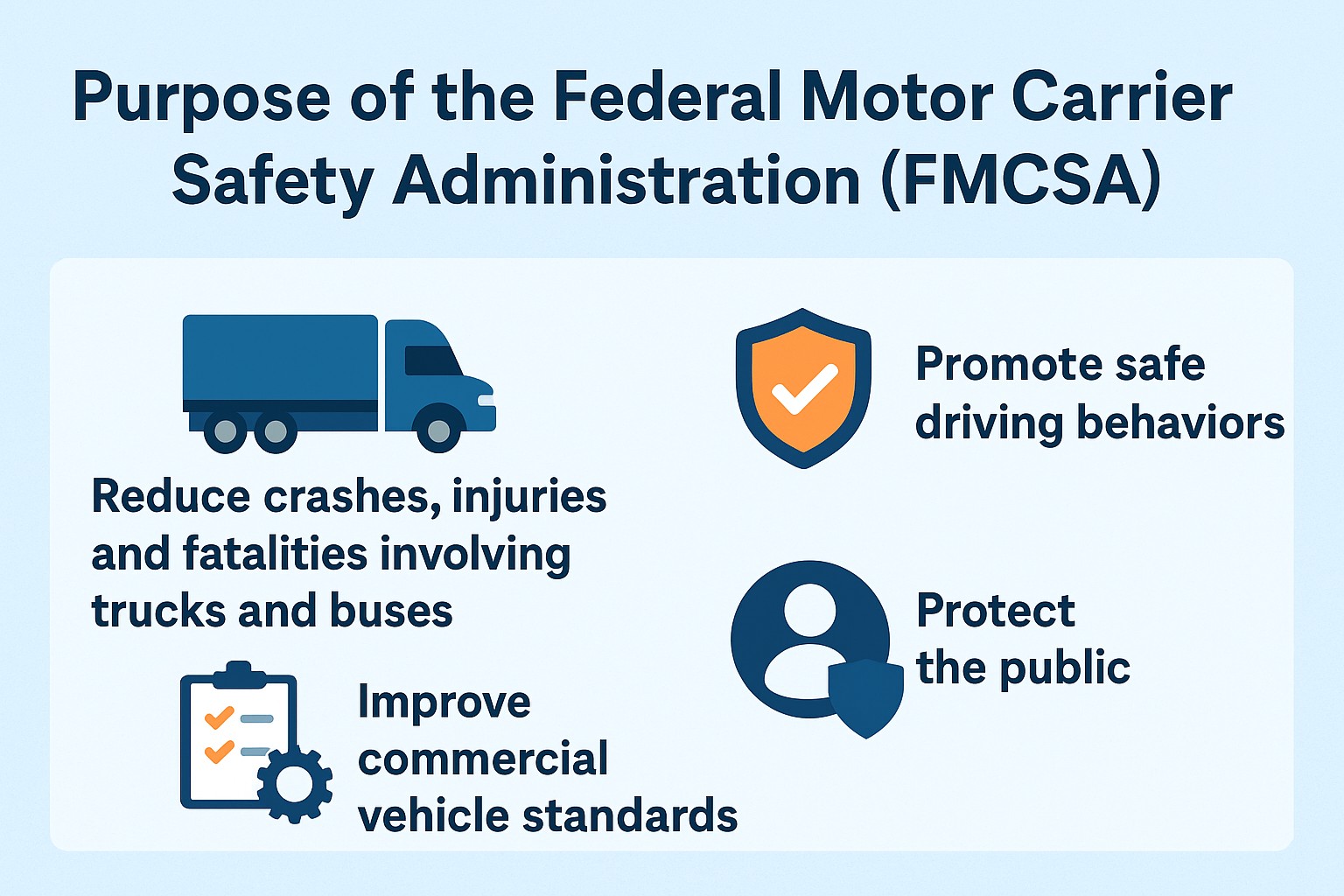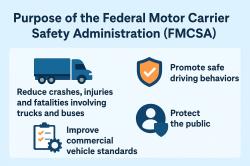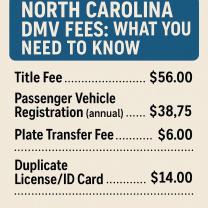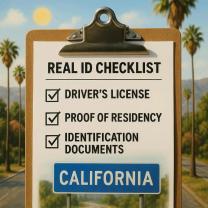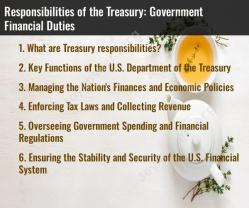What is the purpose of the Federal Motor Carrier Safety Administration?
Introduction
The Federal Motor Carrier Safety Administration (FMCSA) is a critical U.S. federal agency dedicated to regulating and improving the safety of commercial motor vehicles. With millions of trucks and buses traveling across highways every day, the potential for accidents is significant. FMCSA’s primary mission is to reduce crashes, injuries, and fatalities involving these large vehicles, protecting both drivers and the general public.
For truckers, bus operators, and freight carriers, adhering to FMCSA regulations is not just a legal obligation—it’s a matter of public safety. Safe practices prevent fatigue, mechanical failures, and hazardous driving behaviors that could lead to serious accidents. By enforcing comprehensive regulations, FMCSA ensures that commercial transportation remains as safe as possible for everyone on the road.
In this article, we will provide a detailed overview of the FMCSA’s purpose, the regulations it enforces, how it improves road safety, who must comply, and the penalties for violations. This guide is useful for both industry professionals and anyone interested in road safety.
What Is the Purpose of the Federal Motor Carrier Safety Administration?
The FMCSA’s mission revolves around reducing accidents, injuries, and fatalities involving trucks and buses. The agency accomplishes this by promoting safe driving behaviors, improving vehicle standards, and protecting the traveling public.
FMCSA collaborates closely with state agencies and law enforcement to ensure consistent safety standards nationwide. For instance, the agency provides guidance for roadside inspections, audits carriers’ safety records, and shares data-driven insights to identify high-risk drivers.
By setting strict regulations and monitoring compliance, FMCSA also fosters a culture of safety within the trucking and bus industries. This proactive approach not only safeguards drivers and passengers but also minimizes costly accidents and liability issues for carriers.
What Regulations Does the FMCSA Enforce?
FMCSA enforces a wide range of regulations designed to maintain the safety of commercial operations. Key areas include:
Hours-of-Service (HOS) Rules: Limit the number of driving hours to prevent fatigue-related accidents.
Vehicle Maintenance Standards: Ensure trucks and buses remain in safe operating condition.
Driver Qualifications and Licensing (CDL): Set requirements for commercial driver licensing and training.
Drug and Alcohol Testing: Prevent impaired driving among commercial drivers.
Additionally, the agency oversees programs such as Compliance, Safety, Accountability (CSA) and the use of Electronic Logging Devices (ELDs). These initiatives track driver performance, monitor compliance, and provide data to identify carriers at higher risk of accidents. For example, ELDs automatically record driving hours, helping carriers maintain accurate logs and comply with HOS rules.
How Does the FMCSA Improve Road Safety?
FMCSA employs a combination of data-driven analysis, outreach, and enforcement strategies to improve road safety:
Identifying High-Risk Carriers and Drivers: By analyzing crash reports and inspection data, FMCSA can target inspections and interventions where they are most needed.
Training and Outreach Programs: Drivers, fleet managers, and carriers receive guidance on best practices, safety compliance, and accident prevention.
Enforcement Campaigns: The agency conducts roadside inspections, audits, and compliance reviews to ensure regulations are followed.
Over the years, these programs have contributed to measurable reductions in commercial vehicle accidents. By proactively educating the industry and holding carriers accountable, FMCSA enhances safety for all road users.
Who Needs To Follow FMCSA Guidelines?
FMCSA regulations apply to a broad range of commercial entities:
Trucking Companies and Bus Operators: All organizations operating vehicles above the weight threshold for commercial use.
Owner-Operators and Freight Carriers: Independent drivers and small logistics companies.
Interstate vs. Intrastate Commerce: Companies operating across state lines face federal FMCSA regulations, while intrastate carriers may be subject to state-specific rules, though many voluntarily comply with FMCSA standards.
Even small carriers must maintain compliance to avoid penalties and maintain safety ratings. Following FMCSA guidelines is not only a legal requirement but also a mark of professionalism and commitment to public safety.
What Are the Penalties for Violating FMCSA Rules?
Violating FMCSA regulations can have serious consequences, including:
Fines: Monetary penalties for non-compliance with HOS, vehicle maintenance, or drug testing rules.
License Suspensions and Out-of-Service Orders: Drivers or carriers may be temporarily or permanently prohibited from operating.
Impact on Safety Ratings: Poor compliance lowers CSA scores, affecting insurance premiums and business opportunities.
Repeated or severe violations can significantly damage a carrier’s reputation and profitability. For instance, a trucking company with multiple HOS violations may lose contracts or be barred from bidding on certain freight jobs. Compliance is both a safety measure and a critical business practice.
Optional Extra Content
Infographic Idea: FMCSA safety statistics showing trends in crashes, inspections, and compliance over the past decade.
Case Study: A trucking company improves its CSA score by implementing ELDs, regular vehicle inspections, and driver training programs.
FAQ
How often does FMCSA inspect commercial vehicles? Inspections vary by risk, but high-risk carriers may be inspected multiple times per year.
Are FMCSA rules the same for all states? Interstate commerce carriers follow federal regulations; intrastate carriers follow state rules but may voluntarily adopt FMCSA standards.
What is the CSA score, and why is it important? The Compliance, Safety, Accountability score reflects a carrier’s safety performance and affects enforcement priority and insurance costs.
How can carriers stay compliant with FMCSA regulations? Implement regular training, maintain accurate logs, perform vehicle inspections, and follow HOS rules.
Conclusion
The FMCSA plays a vital role in promoting commercial vehicle safety and protecting lives on U.S. roads. Its regulations and enforcement programs help prevent accidents, encourage responsible driving, and ensure that carriers operate at the highest safety standards.
For drivers and carriers, compliance is essential—not just to avoid fines and penalties, but to maintain a safe and professional operation. By staying informed and adhering to FMCSA guidelines, the transportation industry can continue to protect lives and improve road safety for everyone.
